LIBERTAS

VOL. 23, NO 2



VOL. 23, NO 2

Patchwork
Elsah James
Stephen Walker
Ellie Rice
Mahrle Siddall
Lacey Stephens Max Shackelford
Cole Erickson
Selin Deniz Akdogan
Andrew Tinaz
Editorial
Editors in Chief
Copy Editors
Fiction Editors
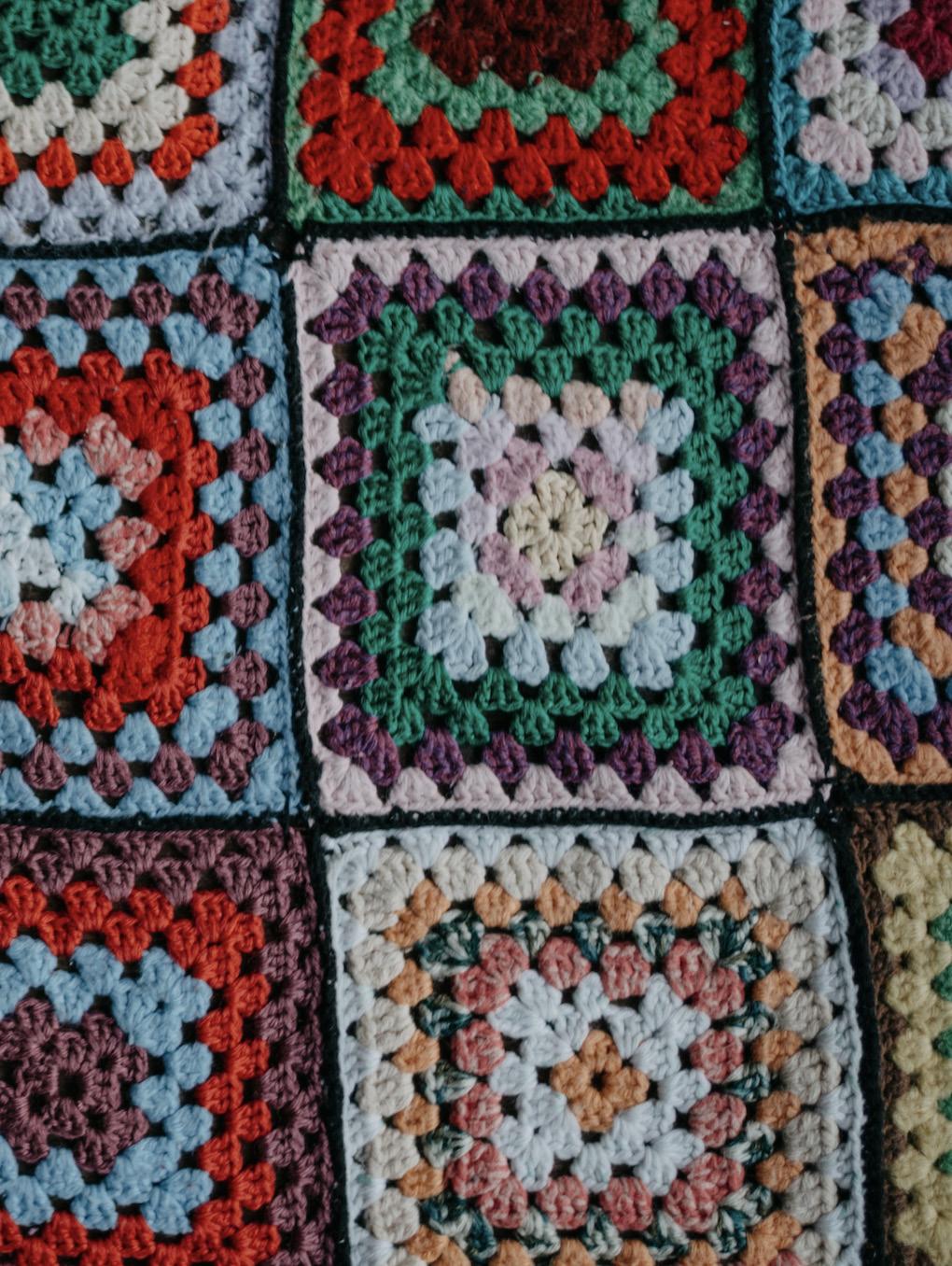
Poetry Editors
Elsah James Max Shackelford
Emma Anglin
Andrew Tinaz
Andre Phillips
Ashley Allushki
Katie Forrester
Phoebe Anderson
Eliana Burgin
Erin Price
Savvanah Vonesh
Layout Editors
Audrey Bohlin
Emma Huff
Cole Erickson
Cate Goodin


By Stephen Walker







How does one begin to understand the force that the blue sky streaked with cloud remnants and the ground covered in grass with mounds of dirt jutting on through and the buildings so massive and immoble and the trees resembling some mollusk-like being from a higher world and the streets linking and merging and running away exerting upon those who have the money or gusto or right combination of mental disorders to stop and take the seconds needed to take hold of their mind, body, soul, releasing them from the hold of cannibalistic machines and rotten networks of bodies devoid of rhythm and meaningless days morphing into not months but years that undermine our ability to soak in the important concepts of love and learning and growing as characters and to realize there is so much more out there and that we are teeny-tiny insignificant cogs in a massive system that never take the time to grow that skill of mustering up the sense of awe needed to take in nature and all the variety of feelings imbued in its subjects? It takes no effort to notice the stench in the air around us but all the effort in the world to stop what we are doing and look up toward the cosmos.





I’m not running away
I can’t tell what I’m running towards I’m not winning the fight
But I’m wielding a sword
by Ellie Rice
ButI’mnotholdingthetorch I’mfuelingtheflames ButI’mnotlightingthematch I’mstilltheonetoblame
So it’s not running away But it’s fleeing the scene It’s not inciting the battle A fugitive warzone caught in-between
Idon’twritethelyrics ButIechothesong Thetunebeatsinmychest Andmyheartpoundsalong
I’m not always honest But I do tell the truth But we’re never as kind As we were in our youth
AndIt’sstillgoingtoschool raisingourhandsAbidingIt’sstilltakingthetest bycommands
Butit’sbreakingthecycle Whilestillworking9to5 It’sdisruptingtherhythm Andtwistingstraightlines
It’snotquite“laviebohème,” “lavieenrose,”oreven“lavie” It’ssomethingaboutfreedom Aboutpeaceandanarchy
The chorus isn’t melodic And the rhymes are offbeat But there’s unity in dissonance Perfection in the incomplete
Itdefiesmonotonoustedium Thecapitalist’sdream Itrejectsshameandguilt, Squanderspatriarchy’sself-esteem
It can never start overIt’sYetrepeatstonoend Buttherecordcaughtspinning it isn’t a ‘trend’
Thehymnsingsofpower, Justice,and humanness,too It’saboutthepain,aching,agony, Andtraumawe’vebeenthrough OrItisheardfromthestreets Hiddenseenwrittenonthepage inthedarkestofclosetsOrilluminatedonthestage
UnearthsIttearsdownsteelwalls, rootsofthepastEnsuringItexposesrealstories,thesongforeverlasts
It’snotlosingcontrol It’snotgainingiteither Butityearnsforavoice Andspeakstobelievers
It doesn’t know where it’s going
But it has purpose and aim
For the embers keep burning
Rekindling lost flames
I board the train to Chicago at 7 AM sharp. I rub my eyes and blink in an attempt to prevent fatigue from creeping in before my three hour long ride. I have so much work to do, and cannot afford distraction, or worse, sleep. I take my seat and lower my tray table, placing my notebook, laptop, and a few pens on it. I sit down and quickly realize that this will not be a productive ride. Behind me, there is a tired looking mother with her daughter, who is wearing a tutu and a shirt so neon it temporarily blinds me. The daughter, who looks to be around four, is upset because she wants to get off the train. She keeps trying to escape the grasp of her mother, who has strategically placed her in the window seat. I feel for the mother. I would hate to be the passenger with the crying kid. She keeps trying to comfort her daughter by whispering, “I’m sorry, honey, but after the ride we get to see your daddy! Aren’t you excited to see him?” The daughter’s crying subsides. I subtly turn my head to take a peak of the scene. The daughter is snuggled into the crook of her mother’s arm while the mother is reading a copy of People Magazine. I take in the mother’s face. Despite her puffy, dark under eyes and fine lines on her forehead, I can tell she’s young. Maybe 20. Suddenly, her phone rings. Her eyes show slight panic as she looks at who it’s from. “Shit,” she says under her breath, just barely loud enough for me to hear her. She answers the call. “Hey. Yeah, I told you we were coming over today. What do you mean something came up? Tell me, is it something or someone because I think she would just love meeting Annie. You are not doing this again. We will be there by 8. You better be there too.” Then, she hangs up. “Who was that?” Her daughter asks. “Your Daddy just called to check in with us. He said he’s so excited to see you!” The daughter seems to buy it. I’m assuming the man on the phone was her father. I hope he comes. I hope she doesn’t grow up on empty promises. I look back again to see them both with eyes shut, snuggled together like puzzle pieces. I close my eyes too. Not to sleep, but to think. I lean my head against the window, feeling the cold glass against my skin. The train passes a
patch of tall trees, causing the glow of the rising sun to act as a strobe light. I cover my eyes with my jacket. I try to think about work and what needs to be done, but I can’t stop my mind from drifting back to the mother behind me. I don’t even know her. I’ve been observing her for 10 minutes and have already decided her entire story.
I hear people laughing loudly at a table near me. I take the jacket off my eyes and look around. I see some teenagers staring at their phones. They’re not actually talking, just laughing. They seem to be playing a game virtually. I lean back in order to get a look on one of their screens. They’re playing Mario Kart. I didn’t even know there was a mobile game for Mario Kart. Yikes, I think to myself. I feel old and I’m only 23. I bet the mother feels old too, if she’s awake to hear. I scold myself for letting my mind wander to her again. I’m invading her privacy, I think to myself. But it’s just my thoughts, how bad can it be. She is doing all of these things in public. It’s not like I’m purposely snooping. I turn back to look at her again. She’s texting someone furiously. I bet it’s the father. Her eyebrows knit together when she reads, indicating that she is unhappy. I glance at her ring finger and notice that it’s bare except for a small tattoo. It’s just a dot. Is it a replacement for a wedding band? Does she share it with the father of her child? I should stop making assumptions about this woman, but I can’t stop. I look back again. The mother is still engrossed in her phone. The daughter stirs awake. I make eye contact with her. I smile and wave, but she does not return the niceties. Instead, her eyes go wide and she quickly buries her head in her mother’s breast. I quickly turn to face forward. I shut my eyes and lean against the window again.
My mind is racing. I am fully aware that I have done none of my work, but this mother continues to consume my thoughts. I bet she’s a good mother. Her daughter seems happy and shielded from her misfortune. The daughter is rather whiny though. I bet the mother spoils her to make up for her father’s absence. I look back and promise myself it will be the last time I do so. I cannot pester this woman anymore, even if it is just in my head. I look at the
floor. Her shoes are dirty and the fabric of her sneakers is torn up near the inner part of her ankles. Between her feet lies a tote bag with childrens books, a laptop, a wallet, and a phone charger. Next to it is a Plato’s Closet shopping bag. I imagine them in their home, which is probably a small apartment. I imagine the mother reading her daughter a bedtime story in the bed they share, lulling them both into a peaceful sleep. I often do this. Piece people’s lives together with the little information they present. I can’t stop myself, even if I know it is invasive. It’s just to myself though, so it can’t be that bad, right? A bit of guilt slips into my mind. Maybe I’ve taken it too far. I wouldn’t like it if someone was making assumptions about me based on what they see. I wouldn’t like being viewed through a microscope. I brush off my discomfort. She chose for that information to be out in the world, even though she didn’t intend for me to hear it. There is no harm in what I’m doing. There can’t be. It’s all in my head. I close my eyes and drift into sleep quickly.
I’m awoken by the sound of the train’s brakes, bringing it to a stop. I check my phone. The time is 7:58 AM. I remember there was a reason I wanted to be awake at 8, but I can’t remember why. I decided to ignore the nagging feeling and go back to sleep. 15 minutes later, I get a call from my boss , but I decide to ignore it. She texts me again and I ignore it. After the third text I check. I decided I should probably get started on some work. I need to have the proposal done by Thursday, and I have not started yet. It is a Monday. I turn my eyes toward my laptop and rub my eyes as I open the document. Before I begin my work, I get the urge to look over my shoulder again at the mother and daughter, except this time, all I see are empty seats and a Plato’s Closet bag. I get out of my seat to examine the area. I pick up the bag and look for a receipt. The name on the receipt is a man’s name. Either she used a credit card that wasn’t hers, or the bag isn’t hers at all. I decide to imagine her living a life of crime. After all, her story is all made up in my mind. With no other evidence, I return to my seat disappointed and begin working on the proposal.
- Mahrle Siddall
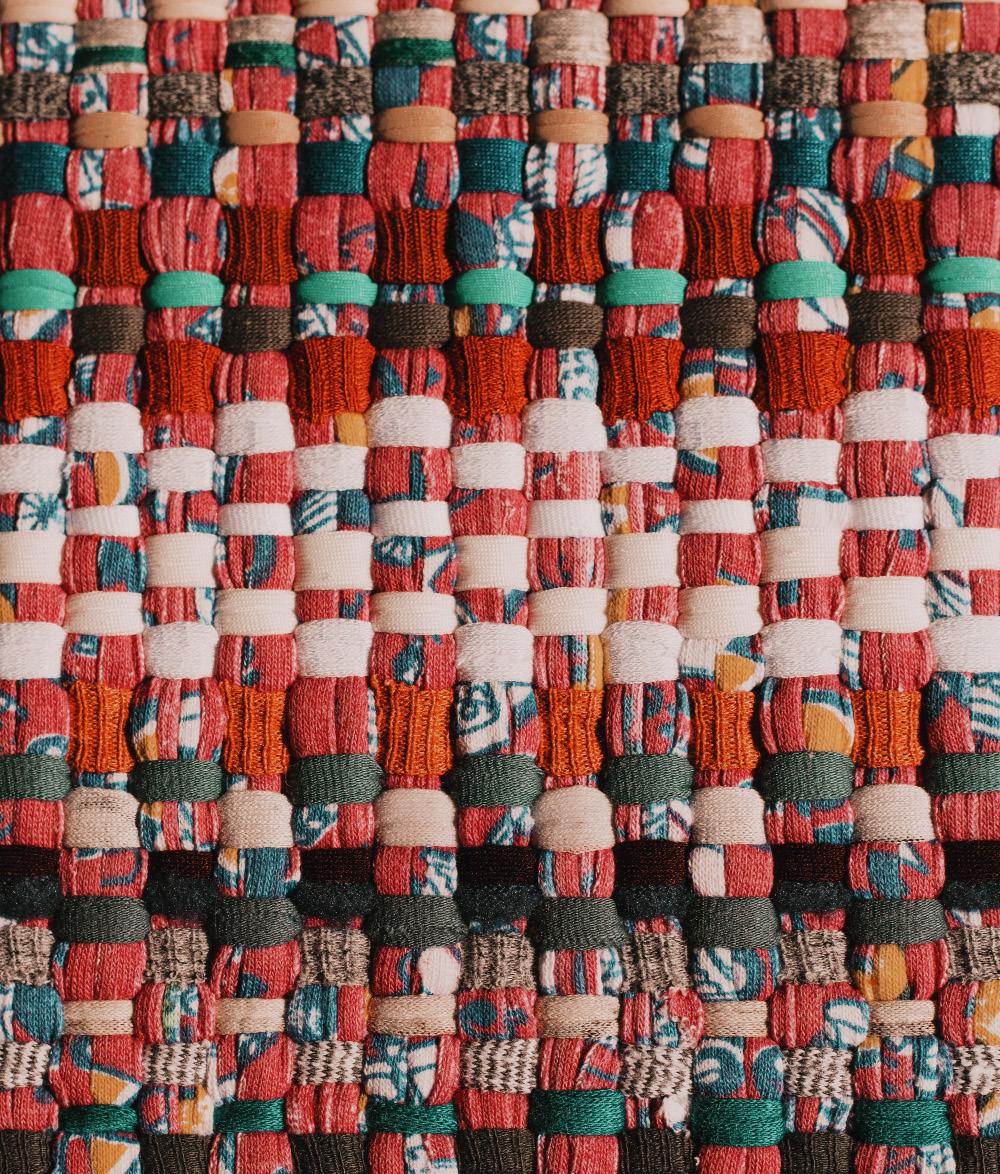

“Flies, Worms, and Fish” by Lacey Stephens
I used to walk around with my mouth open Catching flies covered in honey. They planted eggs And now I like Fireball And racing down I-20.
I would stand in the yard too long And worms would crawl to my ears. They whispered things like Empty seats at your wedding, Writing stuff no one will hear.
No one understood me better than the Fish in the tank in the Chinese restaurant. We would make sweet conversation Swapping memoirs, Stripping our heart.
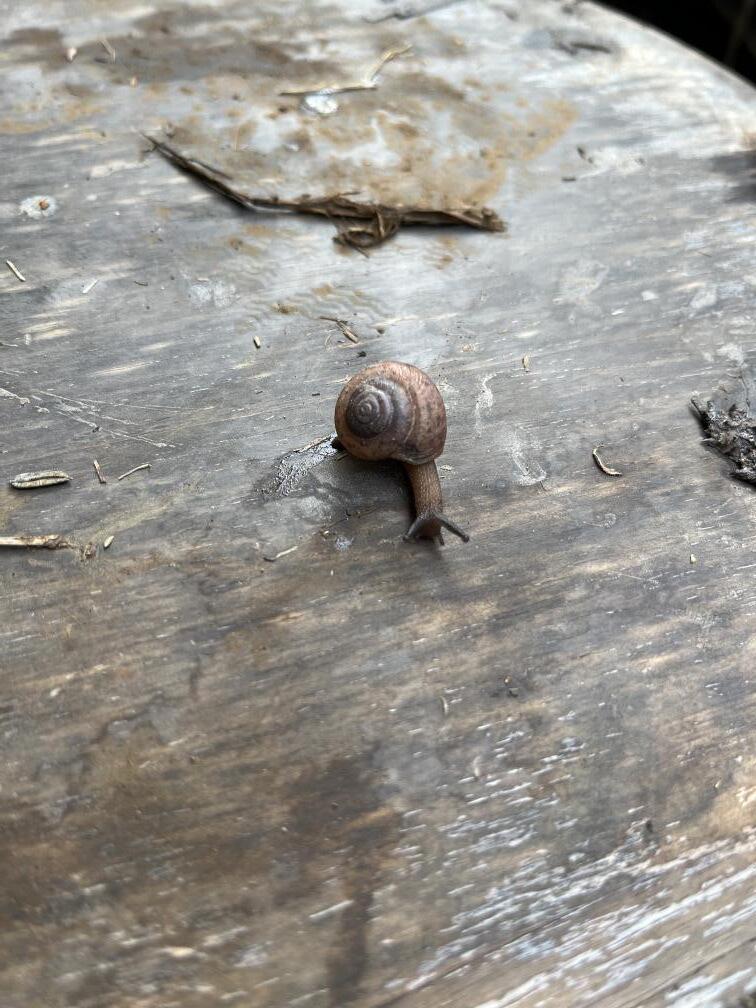
The Flies introduced Hamlet And sushi And wicked ideas of love.
The worms carved out words in my skull Of failure And loss And a past of obsession.
But me and the fish, The fish and I, We talked it all out.

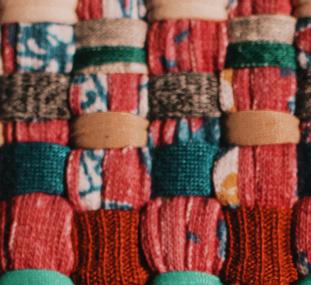

Cole Erickson
I have always thought that the roads in Pennsylvania— just over the state line of northern Maryland, where I’m from—look like patchwork quilts across the gray countryside. Even thinking of it now, I am drawn back to the many times my family and I, together in my mother’s car, or my father’s car, left the smooth roads of our “miniAmerica” for the ruggedly paved, cut, cracked, patched, painted, and paved again highways and side streets of the blasé state that seemed to work and produce and churn out products for a younger, more vibrant America.
Now, though, like a droplet of water traveling along the arm of a rusted giant, I jostle in my little blue car past abandoned factories and man-made rivers, along the patchwork highways of PA.
The voice comes soft from the back seat: “Where are we going?”
Another strike, I think to myself. I’ve forgotten there’s a child in the back seat.
The little girl in the back of my hatchback is dressed in a bright pink parka, only her round face and curly blonde hair showing. Her eyes—steel blue and wide—move around, curiously as she watches the scenery outside. She is secured into the car seat, the straps constricting her puffy jacket.
I hope I didn’t strap her in too tight. Or maybe I didn’t strap her in tight enough maybe the puffy jacket made it seem like she was secure but really she’s not and if we get into an accid—
“Excuse me?” It’s that same, soft voice. “Are we going to the store?”
“I, umm,” I focus on the road ahead. Glance into the rearview mirror to see behind the car, change lanes, then glance back in the mirror to meet those eyes and that pale sweet face. Sometimes she has the glow of an angel food cake, topped with strawberries.
Is that appropriate for me to think? That’s just poetry, right? No. It’s not alright for me to think, it’s fucking cannibalistic. Don’t think about it. Focus on what you’re going to tell her. I don’t know where I’m—we’re going.
“Where—uh, where would you like to go?”
“Mrs. Trolley said that you have a nice house for me to live in.”
“Oh, yeah, we can, uh, go back to my place.” I change lanes again. “Uh—our home.” I correct. “We can go home.” I nod with this last statement—our home—to secure the idea in my head. I am not living alone. We are living together. Just like me and Tommy used to do. Tommy and I.
My Tommy…
He was my…
He is gone. Now I have her. She—she is my…
“Or we can go to store—the store,” she corrects herself. “I like the cereal with marshmallows. We don’t have that at the girl’s home but now I don’t live there anymore so I can eat what I like. And if it’s ok, I’d love to…”
I watch her in the mirror while she talks, her bobbling face staring outside, forgetting she is even speaking, just as I am almost unaware of what she is saying now. Tommy was always talking, always planning, and plotting— dreaming in those long streams of oral consciousness. I was the quiet one who listened. And when he finished, we would live quietly.
Together…
Then car is silent. I glance in the mirror.
“Hey, you ok?”
No answer. Her face has fallen.
THE SEATBELT! SHE’S SUFFOCATING
I turn around in my seat, the car swerving slightly, then straightening in the lanes. She is looking at her feet, eyes passing back and forth between them.
Not dead. Thank. God.
“Hey, why’d you go quiet on me?”
“Sorry,” she said. “Mrs. Trolley told me not to bother you or speak too much. I’ve acted bad.”
I want to tell her she shouldn’t be sorry. I want to tell her that I like to listen to people who talk—that my…
My…
…that my husband, my Tommy, used to talk like that. I want to tell her about him and how I loved him—that I am a man who had a husband, but that he’s gone now. And I want to tell her that in the future, she may very well have two dads…
…but no mother.

She’ll hate me for that—for giving her a life without a mother, a figure of nurture that I’m sure she’s already been deprived of. She’ll hate me for giving her a life without a father too. I’m not a father. I’m just a man who used to have a husband and now has a daughter but doesn’t know what to do.
A pothole comes under the tire, drawing me back. Outside, the bare trees give way to placid Lake Freedmen. Like everything, it is blue and gray, but it is beautiful. We both sit silently, observing everything outside.
“I forgot this lake existed,” I whisper to myself. “What?”
“Oh, I just said that I had forgotten this lake existed. I haven’t been here since I was a teenager.”
I glance in the mirror. She was smiling back at me, so I continued.
“We used to pile in my car at night and drive, just to drive. That’s what we did when we were young. We didn’t care about gas or money or time. We just drove when we didn’t know what to do. I think it’s how we coped with not knowing how to run our own lives…”
I said this, and we both sat again, quietly, now equally aware of the aimlessness of our drive.
A brown National Park sign came over the hill: PLAYGROUND. Below, the white image of a slide. On those drives with my mom and dad and sister, before I was a teenager, we left our “mini-America” for this gray countryside on purpose—for a purpose. We’d spend the day in populated areas of Pennsylvania acting as people of the industry—shopping, purchasing, buying. We hadn’t come to drive or waste gas or waste time. We’d come to buy food and goods to survive. But I can’t remember the stores from those days. Really, I can only envision the playground next to the lake where we’d stop to run around.
Maybe the choice to drive myself and this little girl out here along the highways of PA was not aimless. Maybe I have always known what to do.
“I have an idea,” I say and flick on the blinker. We drift off the highway, towards the playground exit, still following those same cracked and patched quilt-work roads.
Originally written in Turkish and Translated by
Selin Deniz Akdogan
The virulent tension in the air gave me a low but undeniable feeling of cold electrocution from the tips of my toes to the highest point of my head.
In the center of the room, closer to the floor than usual, stood a light brown table. On the table were sour cherries, freshly picked from the branch, in a large transparent bowl, in the most beautiful shade of blood. From afar, the red of the cherries graciously danced with the green of leaves and branches interspersed, giving the impression of a work of art carefully handcrafted from the delicate fingers of a famous painter. A woman sat on one of the iron chairs on either side of the table, a man on the other. Both eyes were fixed on the cherries. Their hands were wrinkled with years, separating the cherries from their branches and the seeds inside, and placing them in the second container on the table, to make sour cherry jam. A round hump was visible on the back of the woman as she leaned over the table. Her hair was neatly gathered over her head, and the ends were elegantly falling over her shoulders. Although her eyes were on cherries, the woman was not looking at the cherries. The wrinkles on her face and the purple under her eyes made my heart feel a certain kind of sadness, perhaps a bit of pity as well. She was tired, it was obvious, but this fatigue was beyond physical dimensions. The man in front of her, on the other hand, had huge hands working a little quicker than the woman’s. The wrinkles on his face were a natural consequence of his age, and they were much less in quantity and grief than the woman. He had a small scar running down the middle of his right eyebrow. They were both silent, and this silence weighed heavily on me. I quietly left the kitchen. I went into the room to the left of the kitchen, lay down on the sofa, and began to read my book. I was yet on my third sentence when muffled shouts started to rise from the kitchen. The woman was shouting something to the man with a voice dripping with venomous fury. The man answered her in an equally angry but quieter voice. From the sound of the chair rubbing on the floor and the opening of the tap, I understood that the man had left the cherries and proceeded to wash his hands. As the man rushed out of the kitchen, the woman’s angry shouts followed him. These shouts also ceased after a few seconds. With the very familiar lukewarm fear in my heart that appeared every time I heard a shout, I made my way to the kitchen and peered through the doorway. The woman was now on her own, continuing to pick the cherries. Maybe it seemed so to me, but it was as if the hump on the woman’s back had grown. There was something choking in the woman’s silence and her rapid blinking. I didn’t go to her. I didn’t know what to say or what to do if I went. I didn’t even know what it was about yet, but fights had become a regular part of my life. I had become adept at recognizing the perilous wreckage of a bitter fight. I continued reading my book as I returned to the room and waited for the bomb to explode. A few pages later, I heard some more shouting from inside. Then the slam of a door with the unbearable silence followed. Again, I left the room softly and proceeded to the room I knew the woman was in. She was lying on the bed, with her left arm over her eyes and forehead. The only source of light in the room was the dim radiance from the moonlight that poured into the room through the farther window. There was an indescribable feeling of moisture and an abnormal gloom hovering in the air. I walked over to the bed, being careful not to step on anything on the floor, or eject a violent reaction from the woman. When the woman realized my existence, she took her arm away from her eyes. Emboldened by this small action, I sat on the edge of the bed. “What happened? Are you okay?” I whispered. I was once again placed under the necessity of providing the consolation for a destruction that I couldn’t comprehend. With the silence of my voice came my half-articulated solaces and worries.
The woman looked at me for a while but didn’t answer. I carefully placed my head on her chest. About twenty seconds later, a sob broke out of the woman’s mouth. And that sob was followed by more hysterical sobs that explained the smell of dampness in the room. I lifted my head from her chest and looked at her face. Her cheeks and nose were red, and tears were flowing from her eyes like a broken faucet. Her chest was rising and falling rapidly and unevenly. Between her choking breaths, she told me what had happened:
The man uttered heartbreaking, hurtful insults at her, because of a possibly facetious joke the woman made. Afterward, the woman told him that the men’s restroom was the other one in an aggressive tone, which had once again offended the man. The man replied, “You’re treating me like a dog, so you’re a dog to me now.”
I knew that the problem between the man and the woman was much deeper than that when the woman mentioned the fights that had happened years ago. This last fight was simply the last straw. Years ago, when the man got married, he had two weddings. The woman came to one and did not go to the second. The man was resentful of it and in all their discussions since then,
“You didn’t come to my wedding, is there anything worse?” he had repeated. Years ago and at another time, when the woman’s first child was still a baby, the woman was tired of carrying her baby in her arms all the time and asked the man to carry the child a little. The man, on the other hand, flatly refused this request and continued to take care of his fiance. Then, to someone else about this event,
“As if she [the woman] would love him if I had a child?” he said. The woman was very hurt, rightly I believed. The man had seen her as too evil of a person to love a child. And just because of this incident, when the man actually had a child, the woman had never been able to love her. She didn’t want to love her.
The man and the woman had not seen each other in years. Last year, they reconciled after a short meeting, of which I didn’t know how or when. This year, they had decided to spend some time together through the break, and not surprisingly, this fight broke out. I had the chance to quickly discover that the man and woman could not stay in the same room for five minutes without fighting. Neither the man could bear the company of the woman nor the woman the company of the man. It was as if the years had grimly and irrevocably wiped away all the love and respect they had for each other, like the water erasing names in the sand. First, the woman had lost the man, and then the man had lost the woman.
When the woman finished telling the story, I too had a heaviness in my heart and tears in my eyes. I laid next to the woman and placed my head over her heart as if trying to mend her broken heart.
“I came here, apart from my husband. Nobody asks me why, ‘Why are you so unhappy? What causes your petulance? Do you have a problem? Are you okay?’” She trembled and very bitterly wept.
She just wanted to be loved, to be worried about, to be comforted. With a strong air of veracity, she believed that she had the grave misfortune of being in the right in a contest that she was doomed to lose. I felt as if I was listening to a querulous child. She was kicked out of the game for her bad temper, but all she wanted was to be liked by her friends.
The man was watching the television in the room inside, like a complacent hypocrite, as we cried silently in the dark in each other’s embrace.
“He is no longer my brother, he is my enemy.” said the woman.
I just nodded my head in agreement. I couldn’t expect them to be siblings after this point. Did the man realize that he had lost a sister from his life? Could he continue watching the television with such imperturbability if he knew?
“This is good,” she said after she calmed down. “I am freed. I am getting rid of my shackles one by one.”
The art of letting go, more impressive in its loneliness than ever before, seemed to provide a facade of comfort to the woman. She had removed another person from her life. Overnight, quieter than a whisper. Another piece was torn away from her heart and patching these pieces up was getting more insufferable. One day, I feared, all she was would be a patchwork of solitude and misery.
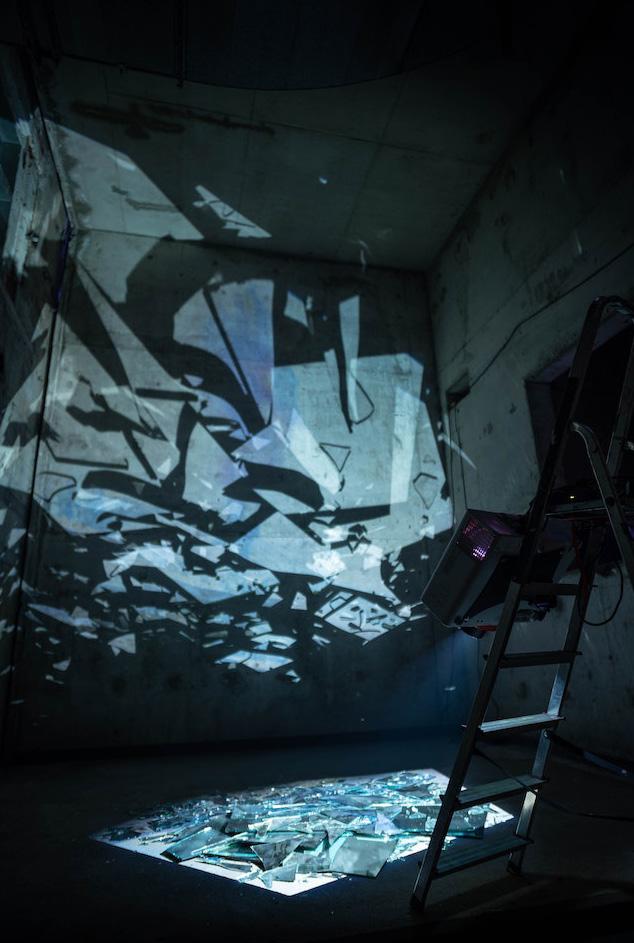
Andrew Tinaz
Four towering walls of mirrored glass draw the limits of the convict, the floor and ceiling of the same. The edges and vertices line perfectly along each other, without cracks or crevices, the room in its entirety hermetically sealed so no dust or bacteria can contaminate the specimen, ensured by nine circular lights forming a symmetrical pattern, which switch infrared to sterilize the room.
Arising from consciousness, the inmate, with blinking eyes and tensed cheeks in dazed confusion, finds himself in this very box. Naked, his body’s oils smudge on the mirror below him. Looking down at his nude form, he races to a corner of the room and huddles feebly. He breathes in unmeasured, shallowed steps. Skin slides on glassy panes, reflecting his wide eyes, their panic pumping and pulsing his skin. He shuts his eyes aggressively, holds them in place with shaking fingers as the light illuminates his lids red.
There is no night for him. There is only exuberant illumination of him and every quality upon his shivering form. The man finally works the courage to open a single eye. Through overwhelming fear, he finds the edges of the room his companions. His visage shattered and repeled between two mirrors of equal clarity. He runs his fingers where the two panes touch, aware of his peripheral vision intensely staring at him. He looks up, breathes hot air against the glass to fog it up, but the moisture quickly dissipates.
In a stint of anger, he spits on his hand and rubs, pressing against the wall vigorously, attempting to wipe off, or at least mask his reflection. But this is to no avail. Bright beams of red, the same shade as his lids, cascade down those high walls and vaporize the markings he had left.
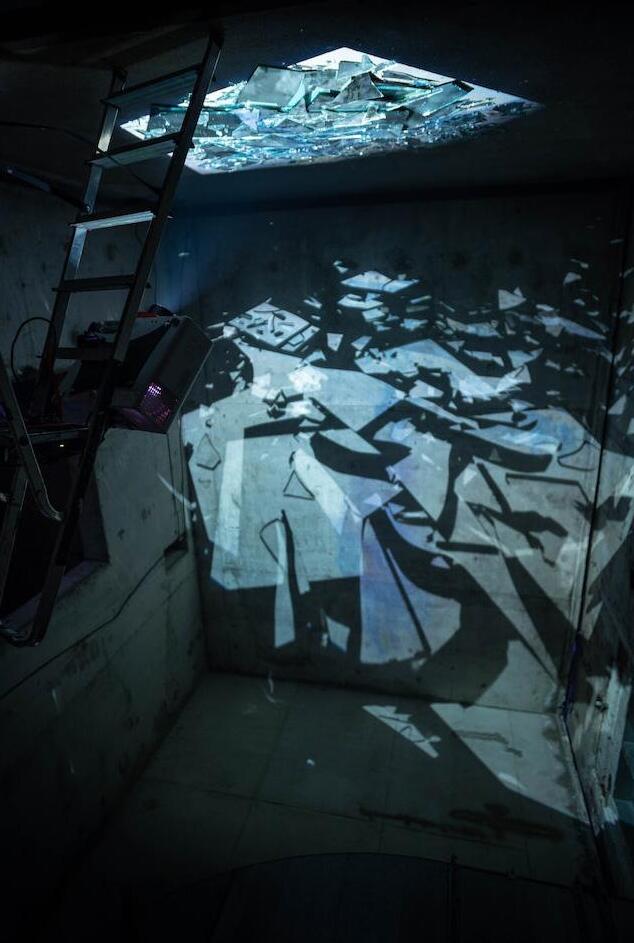
“Hold me.”
The words fall from his mouth, echo upon the walls, before dissipating into the unending, beaten silence. The blood in his ears, the beating of his pulse are all that accompany him, but, in short time, even they fade to an aggravating silence. His heartbeat’s speed doesn’t subside; however, for each time he attempts to look away from his knees, protruding bones barreling into his eyes, he sees a part of himself. Sometimes it is the stomach, whose fat drops down and rattles around as he looks at himself from the side. Or his thighs which, as he curls up, bleed upon each other. His head with spotty hair and his ears seeming too large for his head. He wants to cut them off, declare even that he will cut them off, but his voice is so loud, so terrifying in that lonely place. The worst is the eyes; however, for nowhere in such a room can he gaze upon his body, gaze at its formity and deformity, and not see those eyes darting back. Always observed, infinitely gestured, forever an object of his own gaze.
He begins to weep tears, which slowly dry in reddened light. His tongue feels numb and his body atrophied from his mind, which locks itself in such a position. It is still pumped with memories, cherished life outside of glass and flesh. He slams his head against the wall, to perhaps see some cracks, gaze at himself in some distorted light, but all he sees is blood running across desiccated ground. Blood which filtered glass, which reminds him of his murdered lover, which is burned and rises back up towards blaring light.
Dear Davidson,
So, patchwork.
We openly admit that it’s a weird theme. It offers a lot of freedom, which can allow an artist to explore the wildest corner of their imaginations. Or the freedom can be scary and intimidating. Whatever the maddening artistic processes of our contributors, we at Libertas are once again astounded with the artistic capacity and expression of us, Davidson students. So give yourself a pat on the back if you’re a Davidson creative, and if you aren’t, find a friend who is and offer them some praise.
We did not anticipate our settling on this theme when first brainstorming several ideas for the next issue way back in December 2022. But then we went on break; we relaxed; we thought about school as little as possible; we realized it was time to make a damn choice; and patchwork seemed the strongest. It had this weird magnetism that kept us interested and excited.
We realized that patchwork could mean just about anything. Each individual piece need not address the theme because the final print of the magazine would end up being a patchwork of ideas, words, and images anyways. In that way, this theme is a cop out for us and an opportunity for student artists to take their work in any direction imaginable. No constraints, no limits. And honestly, if we gave you any past issue of Libertas, a reasonable guess at the issue’s theme will always be patchwork because of its versatility. So for this issue, we stumbled into a bold choice that reveals the theoretical underpinnings not only of our magazine but also of the entire tradition of themed literary magazines. It was not our original intention, but we are happy to take credit for it.
Thank you for reading,

Use the QR code to submit your fiction, poetry, and art!
Our next issue’s theme is...
Deadline: Friday, April 7th